Filter by
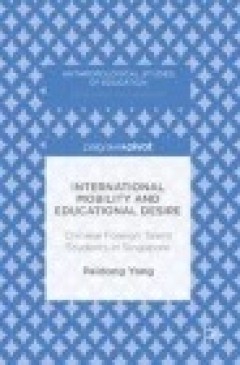
International Mobility and Educational Desire: Chinese Foreign Talent Student…
This work is subject to copyright. All rights are solely and exclusively licensed by the Publisher, whether the whole or part of the material is concerned, specifi cally the rights of translation, reprinting, reuse of illustrations, recitation, broadcasting, reproduction on microfi lms or in any other physical way, and transmission or information storage and retrieval, electronic adaptation…
- Edition
- -
- ISBN/ISSN
- 978-1-137-59143-2
- Collation
- -
- Series Title
- -
- Call Number
- -
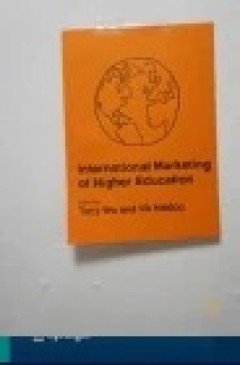
International Marketing of Higher Education
This work is subject to copyright. All rights are solely and exclusively licensed by the Publisher, whether the whole or part of the material is concerned, specifi cally the rights of translation, reprinting, reuse of illustrations, recitation, broadcasting, reproduction on microfi lms or in any other physical way, and transmission or information storage and retrieval, electronic adaptation…
- Edition
- -
- ISBN/ISSN
- 978-1-137-54291-5
- Collation
- -
- Series Title
- -
- Call Number
- -

Genetic Analyses of Wheat and Molecular Marker-Assisted Breeding, Volume 1
The book mainly describes the QTL mappings and efficacy analyses that are associated with wheat productivity, quality, physiology and various stress resistances and provides summaries of results from studies conducted both at home and abroad. It presents comparable data and analyses, helping readers to arrive at a more comprehensive understanding of the latest development in this field. The boo…
- Edition
- -
- ISBN/ISSN
- 978-94-017-7388-1
- Collation
- -
- Series Title
- -
- Call Number
- 630 TJA g

Genetic Algorithms in Java Basics
Genetic Algorithms in Java Basics is a brief introduction to solving problems using genetic algorithms, with working projects and solutions written in the Java programming language. This brief book will guide you step-by-step through various implementations of genetic algorithms and some of their common applications, with the aim to give you a practical understanding allowing you to solve your …
- Edition
- -
- ISBN/ISSN
- 978-1-4842-0329-3
- Collation
- -
- Series Title
- -
- Call Number
- 005.1 JAC g
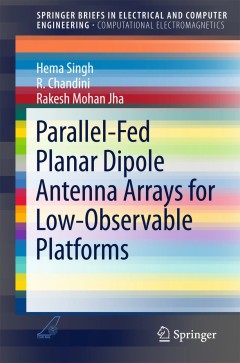
Parallel-Fed Planar Dipole Antenna Arrays for Low-Observable Platforms
This book focuses on determination of scattering of parallel-fed planar dipole arrays in terms of reflection and transmission coefficients at different levels of the array system. In aerospace vehicles, the phased arrays are often in planar configuration. The radar cross section (RCS) of the vehicle is mainly due to its structure and the antennas mounted over it. There can be situation when the…
- Edition
- -
- ISBN/ISSN
- 978-981-287-814-4
- Collation
- XX, 45 halaman
- Series Title
- Springer Briefs in Electrical and Computer Engineering
- Call Number
- 621.382 4 SIN p

Parallel Scientific Computing : Theory, Algorithms, and Applications of Mesh …
This book is concentrated on the synergy between computer science and numerical analysis. It is written to provide a firm understanding of the described approaches to computer scientists, engineers or other experts who have to solve real problems. The meshless solution approach is described in more detail, with a description of the required algorithms and the methods that are needed for the des…
- Edition
- -
- ISBN/ISSN
- 978-3-319-17073-2
- Collation
- -
- Series Title
- Springer Briefs in Computer Science
- Call Number
- 004 TRO p

Parallel Power Electronics Filters in Three-Phase Four-Wire Systems : Princip…
This book describes parallel power electronic filters for 3-phase 4-wire systems, focusing on the control, design and system operation. It presents the basics of power-electronics techniques applied in power systems as well as the advanced techniques in controlling, implementing and designing parallel power electronics converters. The power-quality compensation has been achieved using active fi…
- Edition
- -
- ISBN/ISSN
- 978-981-10-1530-4
- Collation
- XX, 275 halaman
- Series Title
- -
- Call Number
- 621.381 5 WON p
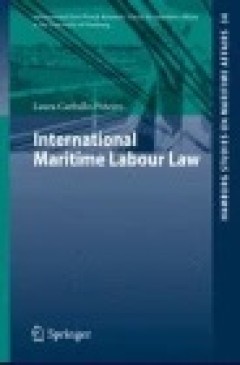
International Maritime Labour Law
This work is subject to copyright. All rights are reserved by the Publisher, whether the whole or part of the material is concerned, specifically the rights of translation, reprinting, reuse of illustrations, recitation, broadcasting, reproduction on microfilms or in any other physical way, and transmission or information storage and retrieval, electronic adaptation, computer software, or by…
- Edition
- -
- ISBN/ISSN
- 978-3-662-47032-9
- Collation
- -
- Series Title
- -
- Call Number
- -
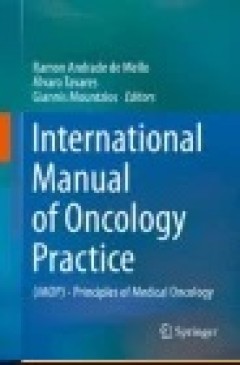
International Manual of Oncology Practice: (iMOP) - Principles of Medical Onc…
This work is subject to copyright. All rights are reserved by the Publisher, whether the whole or part of the material is concerned, specifi cally the rights of translation, reprinting, reuse of illustrations, recitation, broadcasting, reproduction on microfi lms or in any other physical way, and transmission or information storage and retrieval, electronic adaptation, computer software, or …
- Edition
- -
- ISBN/ISSN
- 978-3-319-21683-6
- Collation
- -
- Series Title
- -
- Call Number
- -
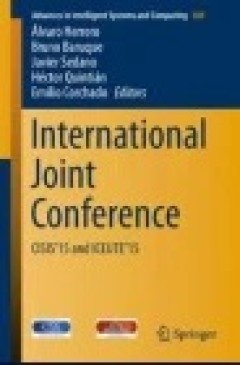
International Joint Conference: CISIS’15 and ICEUTE’15
This work is subject to copyright. All rights are reserved by the Publisher, whether the whole or part of the material is concerned, specifically the rights of translation, reprinting, reuse of illustrations, recitation, broadcasting, reproduction on microfilms or in any other physical way, and transmission or information storage and retrieval, electronic adaptation, computer software, or by…
- Edition
- -
- ISBN/ISSN
- 978-3-319-19713-5
- Collation
- -
- Series Title
- -
- Call Number
- -
 Computer Science, Information & General Works
Computer Science, Information & General Works  Philosophy & Psychology
Philosophy & Psychology  Religion
Religion  Social Sciences
Social Sciences  Language
Language  Pure Science
Pure Science  Applied Sciences
Applied Sciences  Art & Recreation
Art & Recreation  Literature
Literature  History & Geography
History & Geography